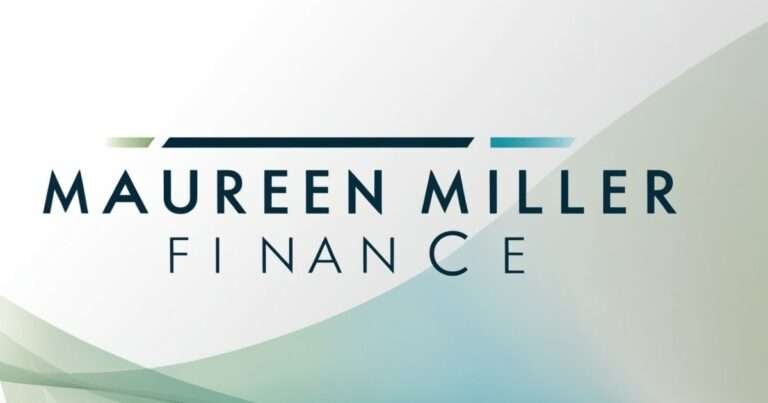Moawia Alghalith’s Ultimate Guide to Top Finance Strategies
Introduction
In today’s financial landscape, strategic planning and informed decisions are critical. Moawia Alghalith’s expertise in finance offers individuals and businesses a comprehensive guide to effective finance strategies—a path that enables financial growth, security, and resilience. This guide covers the essential principles and tactics that form the foundation for financial success. Whether you’re an individual, a family, or a business leader, implementing these top finance strategies will help you achieve long-term goals, grow wealth, and build a sustainable financial future.
Key Financial Strategies for Success in a Dynamic World
Navigating finance can feel overwhelming, especially in a fluctuating global economy. Here, Moawia Alghalith shares top strategies, from budgeting and investment to tax optimization and debt reduction.

1. Budgeting for Financial Control and Growth
Budgeting is foundational to financial health. By actively managing your budget, you gain control over your spending, ensure sufficient savings, and prepare for future investments. Moawia Alghalith highlights budgeting as an indispensable strategy for anyone looking to improve financial stability.
- Establish Clear Financial Goals: Setting clear objectives allows you to tailor your budget. Define short-term and long-term goals—whether saving for a car, building an emergency fund, or preparing for retirement.
- Use Budgeting Tools and Apps: Modern finance tools can simplify tracking expenses. Apps like Mint, YNAB (You Need a Budget), and Personal Capital provide a clear picture of where money is spent.
- Allocate Savings Automatically: Automate your savings by setting up regular transfers. This habit enforces discipline and makes budgeting hassle-free.
2. Smart Investing: Building Wealth Over Time
Investing is essential for financial growth, allowing money to work for you rather than sitting idle. Moawia Alghalith emphasizes diversified investments to mitigate risk while maximizing potential returns. Here are key investment strategies:
- Diversify Investment Portfolio: Spread investments across assets such as stocks, bonds, real estate, and alternative investments like commodities. Diversification minimizes exposure to risk in any single market sector.
- Consider Low-Cost Index Funds: Index funds offer a simple way to invest across a wide range of assets at a lower cost, reducing fees and overall volatility.
- Focus on Long-Term Returns: Short-term market fluctuations are common; long-term investments, however, provide compounding returns, maximizing wealth growth over time.
Benefits: Long-term investing in a diversified portfolio enhances financial resilience and grows wealth steadily.
3. Creating an Emergency Fund for Financial Security
An emergency fund serves as a financial cushion during unexpected circumstances, from medical expenses to job loss. Moawia Alghalith recommends an emergency fund equal to three to six months of essential expenses.
- Prioritize Building Your Fund Early: Regularly contribute to your emergency fund, treating it like a non-negotiable bill each month.
- Opt for High-Yield Accounts: High-yield savings accounts are excellent for emergency funds as they offer liquidity along with modest growth.
- Use It Exclusively for Emergencies: This fund should not be tapped for routine or discretionary expenses. It is strictly for unforeseen financial events.
Benefit: An emergency fund offers peace of mind, allowing for stability during financial disruptions.
4. Debt Reduction and Credit Management for Financial Freedom
Debt can become a significant obstacle to achieving financial independence if not handled strategically. By focusing on reducing and managing debt, you can increase your savings and improve overall financial health.
- Choose a Debt Repayment Method: The Avalanche Method targets high-interest debt first, while the Snowball Method starts with the smallest debt balance, providing motivational wins along the way.
- Monitor Credit Score Regularly: Keeping a good credit score can lower future borrowing costs and is vital for financial opportunities like purchasing property.
- Negotiate Interest Rates: Many credit providers may offer lower interest rates upon request. Even a slight reduction can save hundreds or thousands over time.
Benefit: Managing and reducing debt boosts creditworthiness and opens doors to better financial opportunities.
5. Optimizing Taxes for Maximum Financial Efficiency
Tax efficiency is an essential part of finance strategy, and minimizing tax liability is a valuable way to free up funds for saving and investing.
- Contribute to Retirement Accounts: Contributions to accounts like 401(k)s or IRAs are tax-deductible, reducing taxable income.
- Use Tax-Loss Harvesting: Offsetting gains with losses can help reduce overall tax liability, maximizing returns.
- Maximize Deductions and Credits: Claim eligible deductions and credits, such as home office deductions, education credits, and health savings accounts, for additional tax benefits.
Benefit: Optimizing tax payments means more capital for growth-oriented investments, increasing your wealth faster.
Preparing for the Future: Retirement and Wealth Preservation
The ultimate goal of financial planning is a secure, comfortable future. Strategic retirement planning and wealth preservation protect assets for the long term, ensuring that your wealth lasts for generations.

6. Early Retirement Planning for Compounding Growth
The earlier you start saving for retirement, the more potential your investments have to grow. Compounding returns over long periods can turn even small investments into significant wealth.
- Leverage Employer-Sponsored Accounts: Employer-matching contributions on 401(k) plans provide an immediate return on your contributions.
- Regularly Reassess Retirement Goals: Adjust contributions based on income and financial goals. Periodic reassessment ensures that savings align with retirement objectives.
- Diversify Retirement Savings: A mix of tax-advantaged accounts and investments outside of retirement accounts can maximize both growth and tax efficiency.
Benefit: By planning early, you avoid the stress of under-preparedness and ensure a stable, comfortable retirement.
7. Estate Planning and Wealth Preservation
Wealth preservation ensures that your hard-earned assets remain secure and are passed down according to your wishes. Estate planning also minimizes potential family disputes and financial burdens.
- Establish a Will or Trust: Clearly outline your wishes in a will, and consider setting up a trust for additional tax efficiency and privacy.
- Assign Power of Attorney and Health Directives: Protect your interests in case of incapacitation by designating trusted individuals to make financial and health-related decisions.
- Use Gifting and Trusts to Reduce Estate Taxes: Tax-efficient wealth transfer can benefit heirs by reducing the tax burden on inherited assets.
Benefit: Estate planning allows for a smooth transition of assets, ensuring that wealth benefits family and loved ones.
Enhancing Financial Knowledge for Long-Term Success
Finance is an evolving field. Staying informed about trends and best practices can help you make the best decisions for your financial future.
8. Continuous Financial Education and Consulting Experts
Continuing to learn about finance keeps you updated on trends, regulations, and investment opportunities.
- Attend Financial Seminars and Workshops: In-person or online events provide insights from industry experts.
- Subscribe to Reputable Finance Publications: Resources like The Wall Street Journal and Bloomberg offer updates on financial markets, investment tips, and economic forecasts.
- Seek Professional Financial Advice: Consulting certified financial planners can help align your finances with your personal and professional goals.
Benefit: Ongoing education ensures that your financial strategies remain effective and aligned with changes in the financial environment.

FAQs on Top Finance Strategies
How much should I save for emergencies?
An emergency fund covering three to six months of expenses is recommended for financial security.
What are the best options for low-risk investments?
Low-risk investments include government bonds, high-yield savings accounts, and diversified index funds.
How can I improve my credit score?
Paying bills on time, reducing outstanding debts, and keeping credit utilization low can all improve your credit score.
When should I start investing for retirement?
Starting as early as possible is ideal, as it allows for the growth benefits of compounding returns.
How can I optimize my taxes?
Strategies include maximizing contributions to tax-advantaged accounts, leveraging deductions, and using tax-loss harvesting techniques.
Conclusion: Taking Charge of Your Financial Future with Confidence
By implementing Moawia Alghalith’s finance strategies—budgeting, investing, debt reduction, tax planning, retirement preparation, and estate planning—you can secure a bright, stable financial future. Taking action today will not only empower you financially but also provide peace of mind as you build wealth and prepare for life’s various stages.
Read More: Nebula Financing Your Daily Guide to Fast Funding Solutions





